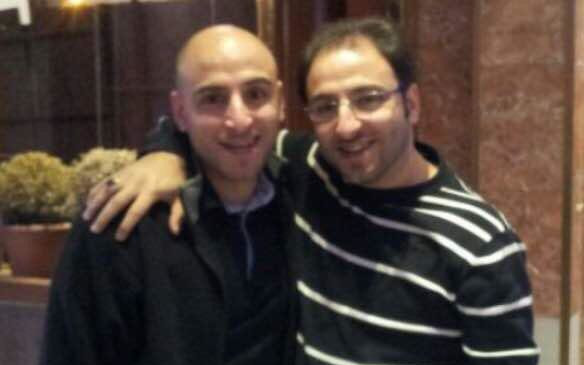Ali Ahmed Fakhrawi and Mohamed Ahmed Fakhrawi are 32-year-old Bahraini twin brothers. Bahraini authorities arrested them in 2015 without warrants, tortured them, and subjected them to an unfair trial. Both are currently being detained in Jau Prison.
Officers in plain clothing arrested Ali and Mohamed from their homes on 18 September 2015. The officers did not provide a warrant or a reason for their arrests. Following their arrests, officers transported Ali and Mohamed to the Roundabout 17 Police Station, where the authorities detained them for three months, during which time officers from the Criminal Investigations Directorate (CID) interrogated the brothers about their alleged involvement with a terrorist group and denied them access to their lawyers.
CID officers subjected Ali and Mohamed to various forms of torture during their initial detention at the police station. The officers handcuffed Ali for 72 days continuously, held him in a cold room, deprived him of sleep, and told him that they would arrest and torture other members of his family if he did not cooperate. As for Mohamed, the officers blindfolded him, beat him, and subjected him to forced nudity while they denigrated his religion and made threats against his family.
The CID officers tortured Ali and Mohamed to coerce a confession out of them, and regularly attributed their arrest and abuse to their uncle, Kareem Fakhrawi, a notable political prisoner who was allegedly beaten to death in Jau Prison by the authorities in 2011. The officers also made comments about having them “visit” their uncle while torturing them.
On 6 June 2016, the Bahraini authorities formally charged Ali and Mohamed with terrorism-related crimes. The government put the brothers on trial without proper representation by their lawyers and without giving them sufficient time or facilities to prepare. The court also allowed the prosecution to use their forced confessions as evidence against them. On 30 October 2017, the court sentenced Mohamed and Ali to life imprisonment, after which the authorities transferred them to Jau Prison.
Mohamed and Ali sought to appeal their cases, but the Court of Appeals and the Court of Cassation upheld the trial court’s verdict on 7 March 2018 and 6 May 2019 respectively, exhausting all their possible legal remedies. They currently remain at Jau Prison, where the authorities have arbitrarily transferred them to isolation rooms. While detained in an isolation room, a detainee can only spend 30 minutes a day outside of the cell. In Mohamed and Ali’s cases, the authorities have also limited their access to water and cut off their access to goods at the prison commissary or mailed to them by their family.
The officers have placed Ali in an isolation room in Section 12 of Jau Prison, in which he is the only Arabic speaker, exacerbating his isolation. They have likewise placed Mohamed in an isolation room in Section 2, which holds individuals convicted on violent and or drug-related charges, and so he may be endangered by this measure.
Bahrain’s actions against Ali and Mohamed violate international law, including the International Covenant on Civil and Political Rights (ICCPR) and the Convention against Torture and Other Cruel, Inhuman or Degrading Treatment or Punishment (CAT), both of which Bahrain has acceded to. In addition, Bahrain has contravened principles of international law laid out in the Universal Declaration of Human Rights (UDHR). By subjecting the brothers to torture, Bahrain has violated Ali and Mohamed’s right to freedom from torture per the ICCPR, CAT, and UDHR. Further, by denying them adequate legal counsel and using their coerced confessions against them, Bahrain has violated Mohamed and Ali’s rights to a fair trial, as enshrined in the ICCPR and UDHR.
Americans for Democracy & Human Rights in Bahrain (ADHRB) calls upon Bahrain to uphold its human rights obligations by annulling Mohamed and Ali’s convictions, releasing them from arbitrary detention in accordance with international law, and, if serious criminal charges can be maintained against either of them, ensuring any subsequent trial is consistent with due process and fair trial rights. We further call on the authorities to investigate their allegations of ill treatment and torture, with a view towards holding the perpetrators accountable.





